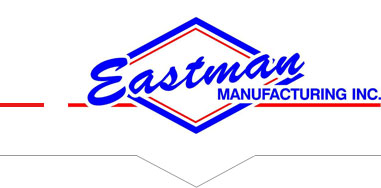Tel: 1-877-860-9294
Blog
Conveyor Oven vs. Traditional Oven: A Detailed Guide
May 11, 2023
When it comes to commercial cooking, choosing the right oven is crucial. With so many options available, it can be overwhelming to determine which one will suit your needs and budget best. Two of the most popular choices are conveyor ovens and traditional ovens. Both have their pros and cons that can affect cooking time, consistency, space requirements, capacity, energy efficiency and cost. In this detailed guide, we'll take a closer look at these two types of ovens to help you make an informed decision for your business.
Key Differences Between Conveyor Ovens and Traditional Ovens
Cooking time:
When it comes to cooking time, conveyor ovens are the clear winner over traditional ovens. A conveyor oven uses a continuous belt to move food through the cooking chamber, resulting in faster and more consistent cooking. In a traditional oven, heat is generated from the top or bottom of the unit and slowly spreads throughout. This can result in uneven heating and longer overall cook times.
Consistency:
One important factor to consider when choosing between a conveyor oven and a traditional oven is consistency. Consistency refers to the evenness of cooking across different batches of food. With a traditional oven, there can be variations in temperature due to hot spots or uneven heating. This can result in some dishes being overcooked while others are undercooked. In contrast, conveyor ovens use consistent temperatures and air circulation to ensure that every dish comes out perfectly cooked.
Space:
Space is always a precious commodity in commercial kitchens. Traditional ovens take up quite a bit of room. They require clearance for ventilation and can't be placed under counters or stacked on top of other equipment like conveyor ovens can. This means that if your kitchen is already tight on space, opting for a conveyor oven might be the better choice.
Capacity:
Conveyor ovens can typically handle larger quantities of food, making them ideal for commercial kitchens and businesses that need to produce high volumes of food quickly. Traditional ovens, on the other hand, come in various sizes ranging from small countertop models to large industrial-sized units. When considering capacity, it's essential to think about your specific needs.
Energy Efficiency:
When it comes to energy efficiency, the conveyor oven takes the lead over traditional ovens. This is because of the design and technology used in conveyor ovens which helps save energy consumption.
Cost:
Conveyor ovens are generally more expensive than their traditional counterparts. However, their energy efficiency and higher capacity make them a worthwhile investment for businesses that need to produce large quantities of food quickly.
Consider your requirements before jumping in on a decision. Also, your search for quality industrial ovens will end at Eastman Manufacturing Inc. Speak to us today to source the best ovens!






